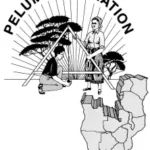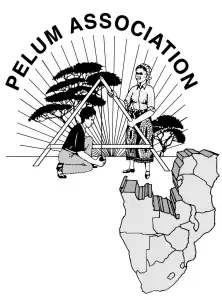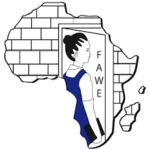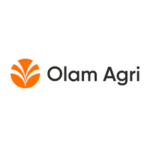
Participatory Ecological Land Use Management (PELUM) Uganda is seeking to fill the position of Participatory Plant Breeding Officer – Rooted in Diversity (RiD): Partnership for food security and Livelihoods project at the Country Secretariat Office in Kampala – Uganda.
As part of a strong Regional Network of over 220 civil Society organizations spread out in 12 countries in East, Central and Southern Africa PELUM Uganda works to improve the livelihoods of small holder farmers and the sustainability of farming communities by fostering ecological land use management. Since 1995, PELUM Uganda has been sharing skills and knowledge about ecological Land use practices and techniques working with a broad network of likeminded organizations; undertaking research and demonstration projects and advocating for policies that better support small holder farmers with a vision of empowering communities in Uganda to sustainably utilize their natural resources.
About the RiD Project.
RiD is a 5-year project formed by a consortium of farmer associations, Civil Society Organisations and Agricultural Research Organizations across 3 Country Implementing partners of Uganda, Malawi and Niger with funding from the Norwegian Agency for Development Cooperation (NORAD), Department of Climate Change and Environment; Section for food.
The project is intended to enhance local knowledge, skills and capacities of small-scale food producers to improve food production and consumption in highly variable and poorly predictable agroecologies premised on the understanding that agrobiodiversity is the best way to promote food and nutrition security and adapt to the unpredictable weather conditions. The project will also work towards positively impacting systemic
change towards appreciation of the roles of small-scale food producers and their organisations in combating food insecurity in the context of climate change by challenging power structures and relationships that
underlie policies and practices around seed and food systems through sharing proven methodologies, previous experiences and linkages, documentation of learning processes and successful approaches for policy advice towards agrobiodiversity, seed and farmer’s rights.
The project focus and impact areas include; Local biodiversity management intended to build research agendas and capacities on participatory plant breeding while improving food storage and stimulating demand for marketing, Local value chains of agrobiodiverse products through dissemination of high quality seed of locally adapted varieties and support local value chains for agrobiodiverse products for stronger market linkages and access for farmer organisations; Innovative Farmer-researcher partnerships to build new ways of farmer-researcher collaboration for increased seed and food systems research and Collaborative environment for policy change to influence policy reforms through evidence based advocacy.
The project will be implemented in arid and semi-arid zones across Niger (Maradi, Dosso and Tillaberi regions), Malawi (Dowa and Nkhotakota districts) and Uganda (Pader, Gulu, Serere, Katakwi, Lamwo and Amuria districts) due the similar agroecosystems and crops, vulnerability to climate shocks largely increased by reliance on subsistence agriculture.
Suitable Candidates who possess the credentials below are therefore encouraged to apply.
Job Title: Participatory Plant Breeding Officer – Rooted in Diversity (RiD): Partnership for food security and Livelihoods project.
Reports to: Programme Manager – Agroecology & Sustainable Natural Resources Management (ASNRM)
Responsible for: None
Other key relationships:


Job Purpose
To support implementation of Rooted in Diversity (RiD) Project by offering technical expertise in Participatory Plant Breeding, agrobiodiversity management and farmer managed seed systems so as to contribute to the realization of the project’s goal.
Job Summary
The job holder supports the ASNRM Manager to implement Participatory Plant Breeding and agrobiodiversity management related activities within the project working closely with other implementing partners.
Main Tasks and Responsibilities
1.0 Providing Technical support and guidance on Participatory Plant Breeding and agrobiodiversity management for the project.
1.1 Execute capacity building activities on Participatory Plant Breeding (participatory variety selection, participatory variety enhancement or participatory variety development) especially for rural farmer’s capacity to access, maintain, improve and develop plant genetic resources using the FFS methodology
1.2 Support the preparation of the training content and materials for the capacity building including on PPB, agrobiodiversity management, farmer managed seed systems: concept notes, budgets, and other support documents.
1.3 Support FFS to conduct participatory identification of priorities for plant breeding (breeding objectives/desired crop traits) and nutrition/local food plants (nutrition bottlenecks, including access to and affordability of nutritious food) depending on farmers’ needs to determine shared research agenda.
1.4 Plans and leads country level thematic working groups/or participates in Country implementing Teams meetings or provides specialized expertise on technical networks
1.5 Support and link farmer field schools with breeders to conduct access breeding lines and undertake PPB
1.6 Implement activities to improve nutrition through the better utilization of local food plants/NUS (FFSbased) through processing, novel cooking methods, domestication/conservation of wild and semi-wild species, seed production, conservation and access.
1.7 Responds to Farmer Field Schools’ requests for technical assistance; provides technical advice, assistance and solutions including providing technical backstopping to field projects.
1.8 Support establishment of strong working relationship between FFS and research institutions to strengthen the capacity of FFS and farmer organizations in (participatory) breeding, variety evaluation and genetic resources/diversity management methods.
1.9 Provide training and capacity strengthening for smallholder farmers and research institutions on agroecological crop and land management to ensure PPB efforts respond to and are embedded in local agroecosystems and are climate-resilient.
1.10 Support establishment of Community Seed Banks (existent or to be established) as hubs where diversity management, seed bulking, commercialization and knowledge sharing come together, and develop local management strategies for their sustainable functioning
1.11 Responsible for the assigned budgets related to participatory plant breeding, monitor the expenditures and report on this to the programme manager.
1.12 Plan for the effective and efficient use of Participatory Plant Breeding resources and approaches within the project scope.
1.13 Evaluate, innovate, and adapt the strategy on Participatory Plant Breeding as part of the RiD project to strengthen food seed and nutrition security.
2.0 Monitoring and reporting
2.1 Gather, consolidate, and submit required project data to the Programme Manager-ASNRM on a regular basis and promote project-wide knowledge management, learning and data utilization.
2.2 Lead the data gathering with (local) partners and country offices for monitoring, evaluating, knowledge building and learning on Participatory Plant Breeding and share these with program stakeholders; pro-actively support exchange on these.
2.3 Ensure data quality control and assurance by reviewing Country Implementing Teams reports on PPB, ensuring their compliance with contract requirements and submit to the Programme manager.
2.4 Work in coordination with Country Implementing Teams and Outcome Delivery Groups to document best practice and learning experiences. Ensure that learning is documented, shared, and utilized as per donor requirements.
2.5 Prepare and submit training and project reports to the Programme Manager-ASNRM.
3.0 Support to the Programme Manager-ASNRM
3.1 Participate in regular planning and progress review meetings with the Programme Manager-ASNRM, and with the project team and coordinate operational monitoring of project activities including organizing and convening monthly progress meetings of the Project Management Unit (PMU);
3.2 Organise and facilitate project events and activities as per project workplan. These may include active involvement in planning and facilitating or co-facilitating at meetings, learning events, workshops, training courses, and other related project platforms.
3.3 Ensure that the Consortium Members, Steering Group and other stakeholders are kept informed of progress and key issues pertaining to PPB and support the Programme Manager-ASNRM as required.
3.4 Support the Programme Manager-ASNRM to conduct, commission and manage PPB research and evaluation.
3.5 Support implementation of other seed and agrobiodiversity management related interventions within the ASNRM department.
4.0 General Duties
• Attend regular departmental meetings and provide feedback especially from other meetings and other key PELUMs issues and events that impact on the work of the departmental staff.
• Actively participate in planning, budgeting, M&E and reporting on PELUM Uganda activities. Advising staff, board, PELUM members on PPB related issues.
• Support fundraising activities in collaboration with other project teams and in line with Project implementation plans and requirements.
In addition to individual respective tasks, all PELUM employees are expected:
• To adhere to our organizational values and to actively promote their application amongst colleagues.
• To undertake tasks in a creative, self-driven and innovative fashion.
• Participate in relevant organizational meetings and fora.
• Participate in raising resources for building PELUM’s reserves.
• Ensure that all activities are implemented in a gender sensitive manner.
• Adhere to PELUM’s policies, procedures, and performance expectations in all functions.
• To identify and implement additional tasks/ ideas of benefit to the organization (whether directly linked to one’s job or not).
• Any other duty as may be assigned by the supervisor.
The attainment of the above will be reflected in the employee’s appraisal, as well as the achievement of outputs, as described in above key responsibilities.
Person specifications
Education
A bachelor’s degree in agricultural sciences, natural resource management, agroecology and other related fields. A post graduate qualification in a related field will be of an added advantage.
Industry experience
• At least 4 to 5 years of experience preferably on Participatory Plant Breeding (PVE, PVS and PVD), development of farmer managed seeds systems, and food security in the context of climate change.
• Previous experience working with Farmer Field School methodology and agricultural research institutions/breeders
• Strong understanding of Uganda’s agriculture sector (including relevant policies programmes) & farmer managed seed systems
• Experience in working with and from a gender transformation perspective
• Experience in organizing seed fairs, domestication/conservation of wild and semi-wild species and organizing novel cooking methods
Technical skills
• Strong written and oral communication and advisory skills, including training/facilitation skills, with proven ability to build relationships with a diverse range of local, national, and global stakeholders.
• Demonstrated ability to deliver results in complex multi-disciplinary structures, prioritize work under pressure, meet deadlines, and hold yourself and others to account.
Personal qualities
Multi-tasking, attention to detail, critical reasoning and problem solving, ability to work under pressure in a complex organization, proactive.
Communication and interpersonal relationship
Capacity to understand and analyse national, regional, and local issues in relation to the project implementation and core values.
Ability to comprehend and articulate PPB related information and arising matters and to provide sound guidance accordingly.
Ability to communicate efficiently and effectively.
Applications Procedure:
If you believe you have the requisite qualifications for the position, please tender in your application cover
letter highlighting your suitability for the position, CV, Copies of relevant certificates, testimonials, National ID and contacts of 3 referees addressed to:
The Country Coordinator
PELUM Uganda,
Plot 37/37A Martyrs Way Ntinda
P.O Box, 35804, Kampala.
Applications should also be sent via email to [email protected] and copied to [email protected] . The Deadline for submission is 12th July 2024 at 05:00pm EAT.
Please Note: Only short-listed applicants will be contacted.
PELUM Uganda is an equal opportunities employer, all qualified candidates are encouraged to apply irrespective of gender, race, religious affiliation, ethnic background or physical abilities.






